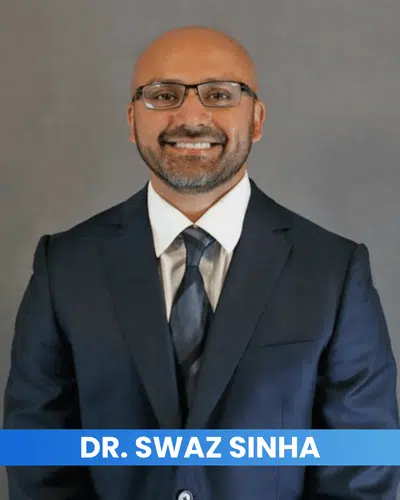About Axis Spine And Orthopedics
About Axis Spine And Orthopedics
Blog Article
Axis Spine And Orthopedics Can Be Fun For Anyone
Table of ContentsAll about Axis Spine And OrthopedicsThe Buzz on Axis Spine And OrthopedicsThe Best Guide To Axis Spine And OrthopedicsSome Of Axis Spine And Orthopedics
An orthopedic surgeon is a doctor who specializes in dealing with troubles of the bones, joints, and connective tissues, and guaranteeing you keep a healthy musculoskeletal system., we have very certified orthopedic specialists that are capable of dealing with individuals of all ages. I got involved in research during my initial year of clinical college, and I started making links with orthopedic doctors early on.
Follow these guidelines meticulously to avoid issues throughout the treatment. Discuss the post-operative care strategy with your doctor. Understand what to expect during the recovery period and just how long it will require to return to daily tasks. Schedule transportation to and from the hospital on the day of surgical treatment.
The Facts About Axis Spine And Orthopedics Uncovered

Your physician will certainly provide plenty of information regarding post-operative care, consisting of just how to remain clean and maintain the surgical area tidy. Adhering to these ideas can prepare you literally and mentally for your orthopedic surgical treatment. Keep in mind to maintain a favorable overview and count on your medical team's expertise, adding to a smoother healing procedure.

Nobody expects you to recognize anything, so don't attempt to memorize a number of arbitrary truths. Otherwise, joint pain can truly mess up your life.
Common problems dealt with by orthopedic cosmetic surgeons are: Fractures and Bone Trauma: Broken bones and other injuries from mishaps or effects. Bone Cancer: Growths in the bones. Orthopedic Injury: Serious injuries impacting bones, joints, or soft cells.
Orthopedic specialists carry out a range of procedures to help people with musculoskeletal concerns. Aside from these subspecialists, some orthopedic doctors are generalists. Training might consist of conventional clinical college (a doctor of medicine degree, or MD)or osteopathic education (a doctor of osteopathy degree, or DO) - axis spine.
The Definitive Guide to Axis Spine And Orthopedics
Next, they complete an orthopedic residency. It's commonly 5 years and gives hands-on knowing in a medical setting. Consultations typically consist of: Discussing your symptoms, clinical background and lifestyle.
Therapy referrals. Some conditions need additional imaging, like a CT scan or MRI for even more extensive views of the agonizing area. additional resources Your orthopedist will advise treatments to minimize signs up until you obtain a medical diagnosis. Orthopedic specialists concentrate on nonsurgical and medical methods. For specific kinds of orthopedic trauma or genetic problems, surgical treatment is usually the initial line of treatment. For a lot of various other problems, orthopedists attempt nonsurgical therapies. It may take even more than one kind of treatment to attain long-term alleviation. Choosing the right is essential for effective medical outcomes and improved person recovery. With a variety of choices available out there, it can be frustrating for both specialists and clients to make an educated choice. The top 5 aspects to consider when choosing an orthopedic implant are surgical compatibility, cost-effectiveness, considerations for alteration surgery, patient-specific variables, and the style and technology of the implant. They are available in various shapes, dimensions, and products, each serving a particular purpose based upon the person's needs. Comprehending the essentials of orthopedic implants is critical before diving into the decision-making procedure. One of the leading factors to consider when picking an orthopedic implant is its compatibility with the operation. Different implants are designed for numerous surgical methods and techniques. The orthopedic implant need to be especially developed to fit the client's composition and make certain stability during the healing process. Surgical compatibility entails factors such as implant dimension, shape, and material. The success of orthopedic procedures relies greatly on the correct selection and placement of implants that are compatible with the individual's composition and medical history. By focusing on person security and well-being, orthopedic doctors can achieve effective outcomes and give the best of like their clients. Surgeons must very carefully consider the biomechanical residential or commercial properties of the dental implant and how it will certainly incorporate with the individual's bone structure. This will add to better surgical results, lowered difficulties, and much shorter recuperation time. When choosing implants for a client, it is essential to think about a selection of patient-specific aspects that can influence the success and outcome of the procedure. These factors incorporate the patient's age, bone quality and quantity, dental wellness standing, case history, way of living behaviors, and visual choices. For older clients with jeopardized bone thickness, shorter implants or implanting procedures might be beneficial to provide the essential stability and assistance. 3. Is the dimension of the orthopedic implant a critical consideration? How does it influence the procedure and the person's healing? Yes, the size of the dental implant is crucial as it should match the patient's structure for appropriate fit and functionality. 4. Can the patient's age and way of life contribute in selecting one of the most ideal orthopedic implant? Definitely. Just how does the expense of an orthopedic dental implant aspect into the decision-making process, and exist means to stabilize quality with affordability? The cost of the dental implant is an important factor to consider, however it must not be the sole determining element. Stabilizing high quality with price includes weighing various dental implant options 'lasting advantages and potential problems. Report this page